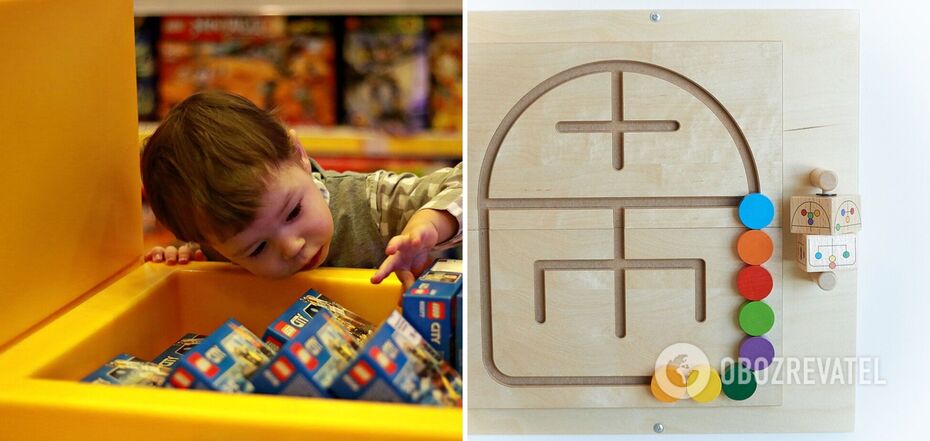Society
Doctors tell how to recognise a child's developmental disability
The birth of a child is the happiest moment in every parent's life. But this day also marks the beginning of a time of constant care, anxiety and responsibility not only for themselves. Any mum and dad want their child to be in good health and develop fully. In the first few years, a child goes through the biggest and most important period of forming vital skills and abilities that become the basis of his or her future life.
Each child develops gradually and at his or her own pace, so there is no need to compare them with others. However, sometimes the progress stops at a certain stage and needs to be corrected by specialists. Healthline, in consultation with paediatrician Karen Gill, MD, talked about the symptoms and causes of childhood developmental delays.
A developmental delay is a slowdown in the achievement of speech, mental, social or motor skills. Minor deviations from the norm usually do not cause concern or negative consequences. However, if there is no improvement or delays occur regularly, you should consult a specialist to determine the cause.
Causes of childhood developmental delays
There is no consensus on what causes a delay in the development of a child. Most abnormalities occur before birth, but some can be caused by injuries, infections and other factors later in life, for example, infections during pregnancy or premature birth can lead to delays. Genetic predisposition remains an important factor.
In addition, developmental delays can be one of the symptoms of another condition, such as
autism spectrum disorder (ASD)
cerebral palsy;
Landau-Kleffner syndrome;
muscular dystrophy;
genetic disorders.
What should parents look out for?
Delayed motor skills
There are fine and gross motor skills. The former includes, for example, holding a toy, and the latter includes jumping or climbing stairs. Each child develops skills in their own way, but there are certain times when they should learn to hold their head, sit up independently, or use cutlery.
The following signs may indicate differences from the norm:
Limited movement of the arms and legs;
Tense limbs;
Prevalence of involuntary reflexes over conscious movements;
Inability to sit unsupported at the age of 9 months and to hold his/her weight for about 1 year.
In case of detection of such symptoms, you should consult a doctor to examine the child's condition.
Speech and language delay
Since the brain develops most actively during the first three years after birth, this is considered the best time for learning speech and language. The process of speech begins when a child cries to communicate his or her needs and begins to recognise basic sounds, and later tries to reproduce them. In young children, it can be difficult to recognise the nature of the problem, as speech and language delays are not the same thing.
Speech requires the vocal apparatus, tongue, lips and jaw to work together to produce sounds. A speech delay occurs when a child speaks fewer words than he or she should for his or her age. A language delay occurs when a child does not understand what other people are saying and cannot express their thoughts.
If you notice symptoms of a speech delay in your son or daughter, it is better not to delay going to the doctor, as early diagnosis and correction give the best results.
Autism spectrum disorder (ASD)
This term is used to describe several disorders of the nervous system. People with this disorder move, think, and communicate differently from others. As a rule, autism can be recognised in early childhood.
Common symptoms of ASD include:
Lack of response to one's own name;
Inability to speak or remember words and sentences;
Repetition of the same movements;
Lack of facial expressions;
Coordination problems;
Unwillingness to hug or communicate with others.
There is currently no cure for ASD, but there are therapies and additional tools that can help you better understand your child and help him or her get rid of stress and interact with the environment.
Taking care of the child's health and development is the main mission of parents. Your child may be different from others and develop according to his or her own scenario, so don't panic if he or she does something more slowly. It's also worth remembering that even in the case of developmental delays, it is dad and mom who can help you feel confident and able to overcome any problems together.
Earlier, OBOZREVATEL talked about the possible long-term impact of the coronavirus on the health of newborns. Scientists believe that infections and fevers during pregnancy can cause long-term negative consequences, such as autism or schizophrenia in a child.



























